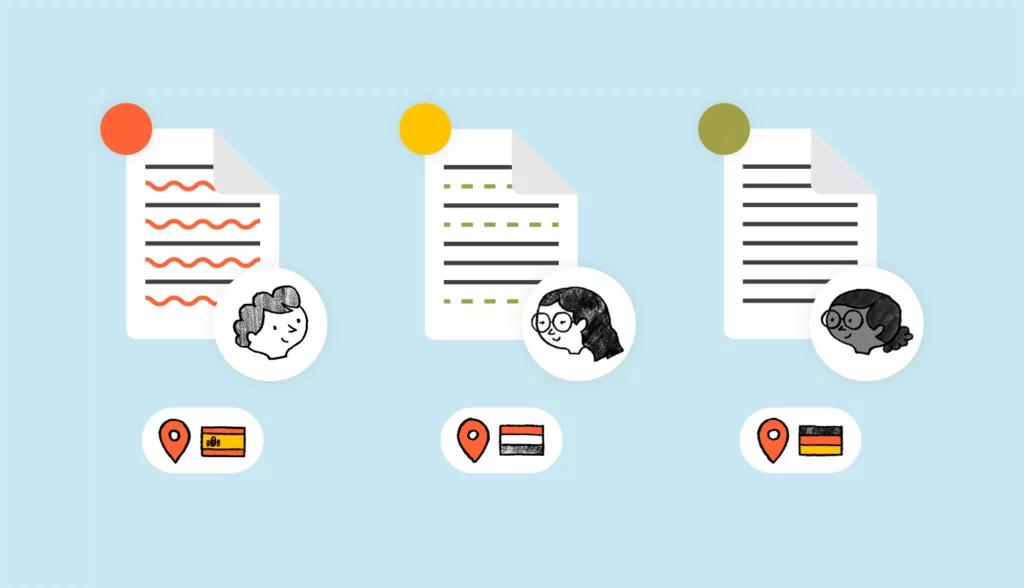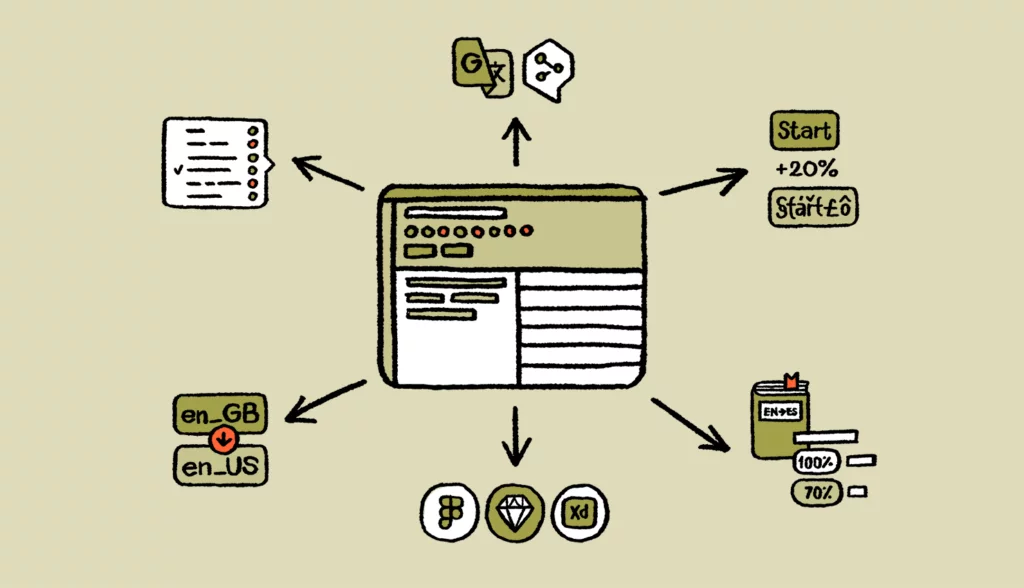Businesses in Quebec have experienced significant changes since Bill 96 took effect.
The law, designed to protect and prioritize the use of French as the official language in Quebec, has sparked protests, court challenges, and concern from groups representing English-speaking Quebecers. One year on, we reflect on the consequences of Bill 96 and how translation and localization tools can help businesses navigate this new language landscape.
First, though, here’s some background information.
What is Quebec’s Bill 96?
Quebec’s Bill 96 proposes several language rights related to the use of French in Quebec, including making French the only official language of Quebec, requiring businesses with more than 50 employees to conduct their activities in French, and immigrants seeking permanent residency to pass a French language test.
It also proposes changes to the language requirements for public signs, and the use of French in the workplace and in schools.
What Bill 96 means for businesses in Quebec
The enforcement of Bill 96 has had a huge impact on businesses operating in Quebec. From mandatory French translations to multilingual customer support, organizations have had to to make sweeping changes in their operations in response to the new legislation.
Below, we look at how Bill 96 has reshaped the Quebec business landscape and how it affects day-to-day operations.
1. Translation for marketing materials and signs
Bill 96 states that all marketing assets and public-facing information be available in French. This means businesses must translate websites, advertising campaigns, product packaging, and in-store signage to be compliant. For many organizations, especially those that have traditionally operated in English, this has meant allocating resources to translation management services and ensuring that future marketing materials are in French from the get-go.
The exception is trademarks on public signs, posters, and in commercials, which can be written partly in a language that’s not French. But, only as long as the trademark is officially registered and there’s no French version of it recorded in the trademark register.
2. Employment policies and workplace language
Bill 96 also influences workplace dynamics, as companies are expected to conduct daily operations predominantly in French. This requirement impacts internal communications and has implications for hiring practices, as businesses must prioritize candidates who can fluently communicate in French. As a result, many companies have updated their employment policies and onboarding procedures to align with the new language requirements.
3. Adaptation to French-first customer service
With Bill 96’s emphasis on the consumers’ right to be served in French, businesses have also had to adapt their customer service strategies. This has led to a growing demand for bilingual and French-speaking staff. This places additional pressure on hiring and training efforts, as companies must instill a French-first mindset in their personnel and provide adequate language resources.
4. Potential legal repercussions for non-compliance
Failure to comply with Bill 96 can result in legal repercussions for businesses, including fines, penalties, and potential damage to their reputation in Quebec. Companies that neglect to respond to the language requirements put themselves at risk of enforcement actions, which can have long-lasting consequences on their growth and success. Investing in language compliance measures is essential to mitigating these potential drawbacks.
5. Navigating the e-commerce space
Online stores, product descriptions, user interfaces, and any service-related communication must now be available in French to accommodate the local consumers’ preferences. This creates an additional layer of complexity for e-commerce businesses, as they must ensure that their platforms are fully localized and optimized for French-speaking users while maintaining a seamless user experience and high responsiveness.
6. Financial Burden on small businesses
The financial burden of adjusting to the new language requirements under Bill 96 has been felt more acutely by small businesses, which often have limited resources. Meeting regional language requirements can be costly in terms of time, money, and effort, particularly for small businesses with fewer staff members and budgets. Despite these challenges, smaller companies must still comply with the law, prompting many of them to explore more cost-effective solutions such as localization platforms to streamline and simplify their French translation and compliance initiatives.
7. Time and cost management
Translating existing material into French can be time-consuming and labor-intensive, not to mention the ongoing need to ensure that new content complies with the law. However, effective localization platforms can significantly alleviate these challenges.
How to adapt to Bill 96 with localization tools
Localization platforms help businesses automate the translation process at a fraction of the time and effort it would take to do it manually. Whether you use machine translation paired with a human reviewer, or order translation services through localization platforms, the whole process is easy and quick. This means you can maintain compliance with Bill 96 while minimizing the impact on your resources.
As we continue to monitor the progress and impact of Bill 96, localization software will be key so that businesses can adapt quickly to changing language requirements and avoid penalties.
Here’s how Lokalise can help
Navigating the complexities of Bill 96 has become a top priority for businesses operating in Quebec. As the demand for French translation and compliance initiatives is at an all-time high, tools like Lokalise can help you localize websites and mobile apps, games, IoT, software, and digital content for international markets.
How does Lokalise work?
Lokalise is a localization and translation management platform that unifies teams and streamlines the entire localization process, so you can stay on top of all translation and localization tasks.
You can integrate Lokalise with your existing tools, like content management systems, repositories, customer services tools, and more.
Once you sync your information, you’ll be able to view, edit, and assign tasks from the Lokalise editor, and automatically push translated content back to the website (or elsewhere) once it’s ready.

With Lokalise you can:
- Translate your localization files and localize marketing assets
- Collaborate with teams and manage all your localization projects in one place
- Implement an agile localization workflow
- Add screenshots for automatic text recognition and make it easy to translate in context
- Set up automated workflows via integrations, an API, and webhooks
- Take advantage of translation quality assurance
- Talk to your customers in their native language instantly and accurately
- Order professional translations or use machine translation
- Create a glossary to ensure consistency and reduce manual translation edits.
- Use Lokalise AI to translate in bulk, in-context, and on-brand
Need to quickly translate your website or mobile app into French to comply with Bill 96? Start your 14-day free trial with Lokalise.




